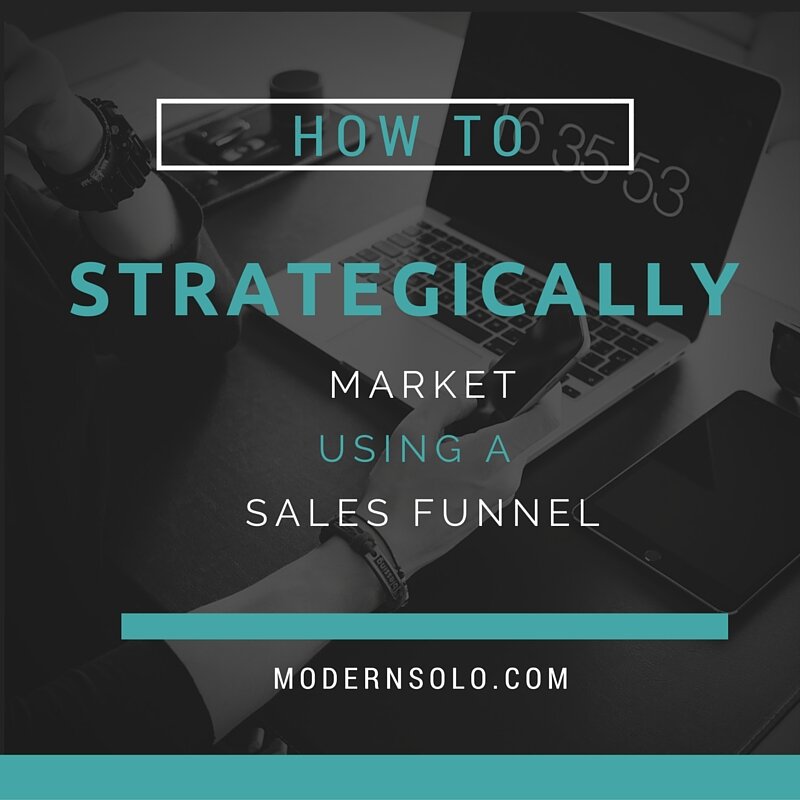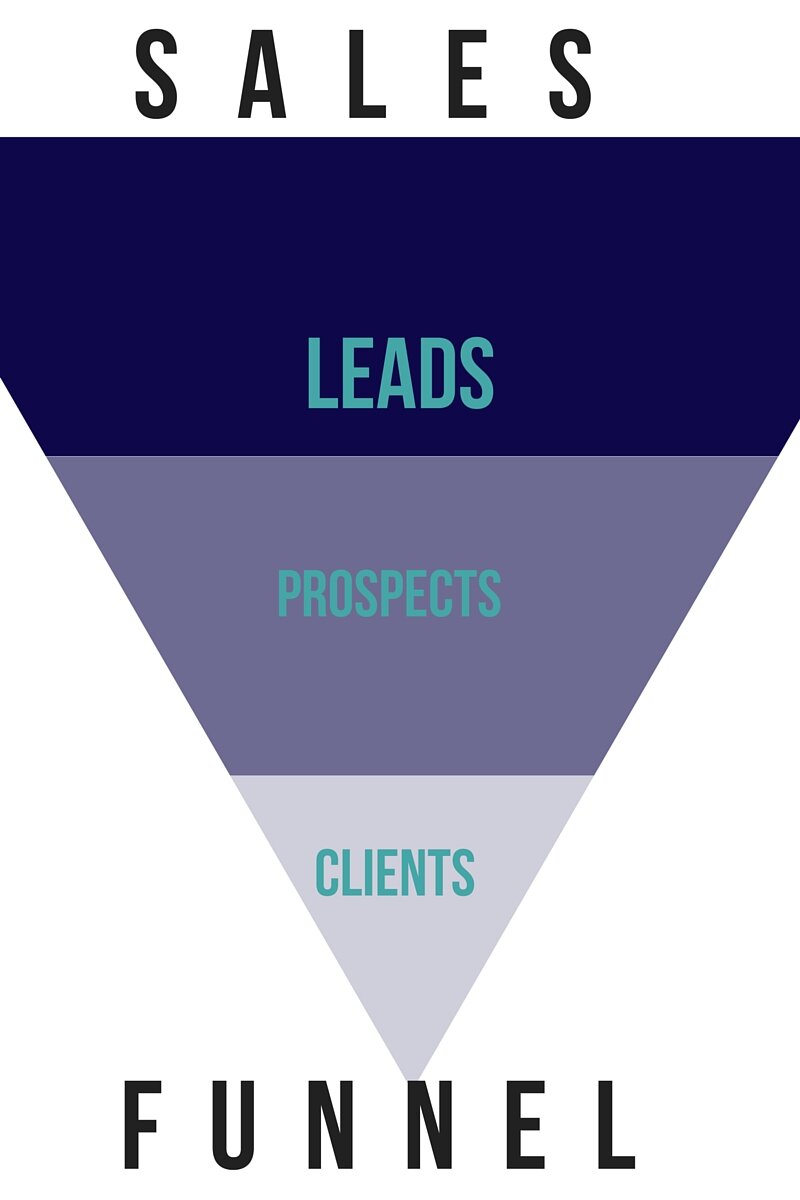How To Strategically Market Using A Sales Funnel
 With increasing competition in the legal field, being a good lawyer is not enough to get clients. In order to be successful you have to think strategically and use every tool available to reach prospects. One of those tools is a sales funnel that combines online and offline marketing help you reach targeted clients. A sales funnel is the process prospective clients (or leads) go through to become clients. It’s essentially your system for attracting and retaining new clients.
With increasing competition in the legal field, being a good lawyer is not enough to get clients. In order to be successful you have to think strategically and use every tool available to reach prospects. One of those tools is a sales funnel that combines online and offline marketing help you reach targeted clients. A sales funnel is the process prospective clients (or leads) go through to become clients. It’s essentially your system for attracting and retaining new clients.
Having a strategic sales funnel can aid you in :
- Creating consistent marketing activities that target your ideal clients;
- Budgeting time and money for marketing;
- Being proactive in you quisition of clients as opposed to passively waiting for results from word of mouth or referrals;
- Controlling the customer experience from first contact to completion;
- Weeding out the bad fits and those only seeking free legal advice.
Before you get started, you need to determine:
- Your ideal client. Consider creating a marketing persona.
- Where your ideal client looks for information.
- How they make purchasing decisions. Do they look at reviews? Certain publications?
- What you want them to buy first, and the accompanying cross sells or upsells.
- What you will offer to get them interested. Discount? Free Webinar? Free consultation?
THE SALES FUNNEL CONSIST OF:

LEADS
AWARENESS
Making leads aware of you is the first step. This can be achieved through social media marketing, attending events, advertising, and word of mouth.
Action Steps:
Determine the best channel to reach your ideal clients. Use your marketing personas to determine how to best make YOUR people aware of your company.
This is where your branding starts to shine. Once you narrow down your channels, you need to start sharing your brand story and what you have to offer.
EDUCATE
At this level, people begin to be interested. You need to give them the information they need to decide to go forward.
Action Steps:
In this step you need to teach people why they need your service and how it works. You can use social media, blog posts, seminars, webinars, e-books and anything else that your ideal client would use to learn more about the problem your service solves. At this stage, be gentle about promoting sales. They still haven't converted so you don’t want to push too hard by being overly aggressive. Make them feel like you want to help them, not that you want their money. Repetition is key!! Potential clients may need to see your brand and what you offer many times before they buy in. This means hearing people talk about you or seeing you in their newsfeed multiple times before they decide to call or click. An editorial calendar is an essential key to success at this stage.
PROSPECTS
CONVERT
At this level, the prospect is interested enough to give you contact information so they can get more information, but you have to work for it.
Action Step:
Create quality content upgrades or email list opt ins to entice prospects to take the next step. Give them something useful that they would possibly be willing to pay for- for free.
ENGAGE
Once the prospect signs up for your email list, you can’t leave them hanging. After sending your content upgrade, give them a next step like setting up a consultation.
Action Step:
You have to follow up with additional, helpful information. Send regular bonus content, discounts and other useful tips to your email list on a regular basis. If you don’t engage regularly, they’ll unsubscribe or send you to spam.
CLIENTS
Transaction
Now that you’ve earned their trust and displayed your expertise with all of the free and useful information, the qualified leads should be ready to purchase. For lawyers, this means scheduling a consultation.
Action Steps:
Pre-meeting correspondence. Meeting with a lawyer can be intimidating. Give your prospect all the information they need to make the consult as comfortable as possible. Once the consult is scheduled, automatically send an email that includes:
- Appointment date and time;
- Directions to your office;
- parking/ public transportation information;
- Any special instructions, such as checkin in with security;
- Intake questionnaire;
- List of documents they need to bring.
Warm reception at your office. Ensure that every client that comes into your office receives consistently excellent services. This means being greeted promptly, being offered something to drink, and being quickly shown to the conference room. The fastest way to annoy a prospect is to make them wait. If they arrive early, it’s understandable that they may have to wait a few minutes, but be ready to meet with them at the scheduled time. Treating them as if their time is not as important as yours is a quick way to make a bad impression. Organized consult. You should have an organized process for every consultation. Make an agenda, so you know what to talk about and when. This makes you seem in control, helps manage time, and ensures that you don’t leave out anything important. Post-consult follow-up. If the client hires you at the end of the meeting, you need to have a process in place to inform them of the next steps. A lot of information is exchanged during the meeting, so I find it helpful to include a summary of the important things we talked about. If they don’t hire you, or you declined to take the case, you still need to follow up. If you declined to take the case, be sure to send a letter or email confirming that decision. If you promised to give them the name of another attorney, do so in writing. Often clients may want to meet with other attorneys or just think before signing a retainer. Follow up the next day asking if they have any questions and once again a week later. I personally end it here, but some attorneys keep following up for several weeks. If they signed up for my email list, they’ll continue to receive targeted information. The work does not end once they become a client. Reputation matters. This means delivering on what you promised during the consultation. If you promised to return phone calls, make sure you do that. Whatever you promised throughout the funnel, you HAVE to follow through on. Immediately fix problems. If a client comes to you with a complaint, use it as an opportunity to blow them away. By correcting problems right away can turn an angry client to your biggest advocate. For more tips like this on how to grow your law practice, join the Modern Solo tribe!
